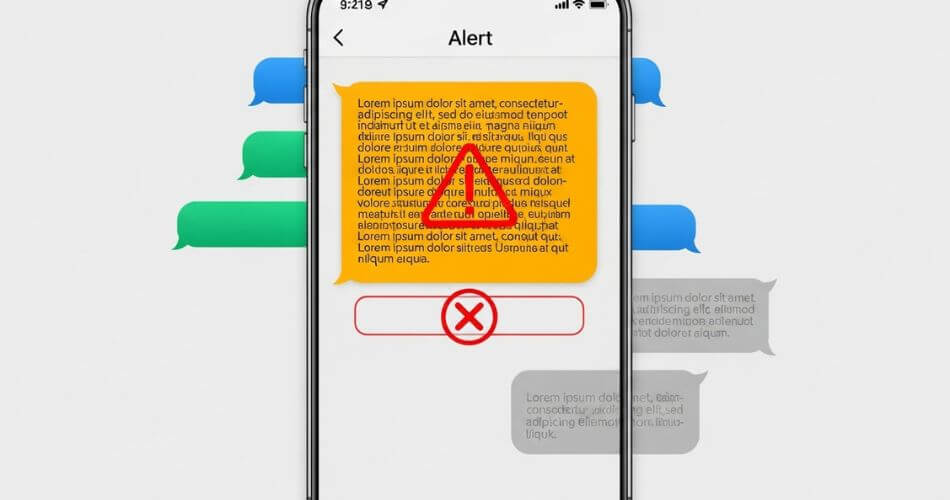Property Scams Targeting Seniors in South Africa
Digital Dignity: A Senior Homeowner's Guide to Avoiding Property Scams in South Africa
How to Protect Your Property and Your Peace of Mind in a Digital World.

If you feel overwhelmed, frustrated, or even a little fearful when dealing with the digital world, you are not alone. Your feelings are not just valid; they are a completely reasonable response to a world that has changed at a mindboggling pace.
What was once a world of handshakes, paper documents, and face-to-face conversations is now one of clicks, portals, and digital signatures.
This guide is designed to be your trusted partner through this new environment. It is built to give you the knowledge and confidence you need to protect your most valuable asset, your home, from the growing threat of property scams targeting seniors in South Africa.
The "Digital Dignity" Gap: Why Feeling Overwhelmed Online is a Legitimate Concern

The sense of unease many homeowners of your generation feel is so widespread that it has a name: the “grey digital divide.”
This is not about a lack of access to a smartphone; after all, nearly every internet user in South Africa owns one. Instead, it is a gap in confidence, skills, and comfort with the very devices we are now expected to use for life’s most important transactions.
The Reality of the Grey Digital Divide
You are part of the single largest and most active group of property owners and buyers in the country. Buyers between 50 and 64 now account for 24% of all residential sales, a figure that is steadily growing.
Yet, studies show that this same demographic often has the lowest confidence in mobile skills. This creates a difficult situation where the primary tool for accessing the modern property market is the one that causes the most stress.
This widespread digital anxiety for older adults is rooted in real-world challenges. Age-related changes in vision or fine motor control can make small screens and sensitive buttons difficult to use.
This isn’t a personal failing; it is a design failure. Technology has, for the most part, been designed by the young, for the young, without considering the life experience and physical realities of a mature user.
The Emotional Weight of Being Left Behind
When you are told to “just go online” to handle municipal accounts, banking, or property documents, it can feel dismissive.
It can make you feel “backward” or even “stupid” for not understanding systems that seem second nature to others. These feelings are the emotional cost of digital exclusion.
The constant pressure to play “catch-up” with technology is exhausting, and it does more than just cause inconvenience. It can chip away at your sense of independence and self-sufficiency.
Being able to manage your own affairs with confidence is a cornerstone of personal dignity. When that ability is threatened by confusing interfaces and constant security fears, the frustration you feel is a direct response to that erosion of your personal agency.
Restoring that sense of control is what “Digital Dignity” is all about.
Knowledge is Power: Understanding the Common Property Scams Targeting Seniors in South Africa

The vague fear of “being scammed” is paralyzing because the threat feels invisible and unpredictable.
But when you can name the threat, understand how it operates, and see its patterns, that fear is transformed into manageable awareness.
Criminals targeting senior homeowners use a predictable set of psychological tricks that, once exposed, lose much of their power.
Unmasking the Impersonators.
One of the most common and effective tactics is impersonation, often through a phone call (vishing) or a deceptive email (phishing).
A criminal will contact you pretending to be from an institution you trust, like your bank, SARS, or even the South African Police Service (SAPS).
They create a sense of panic and urgency, perhaps claiming your account has been compromised or that you owe unpaid taxes, threatening penalties if you do not act immediately.
Their goal is to rush you into revealing sensitive information, most often the One-Time PIN (OTP) sent to your phone.
SAPS has issued public warnings about these scams, noting that criminals even use official-looking logos and the names of real police officers on fake documents sent via WhatsApp to appear more credible.
Remember, no legitimate institution will ever call you and ask for your OTP or password to “reverse a transaction” or “stop a fraudulent payment.”
Exploiting Emotion and Trust.
Another category of scams, known as social engineering, is designed to manipulate your emotions.
The “Grandparent Scam” is a heartless example, where a fraudster calls pretending to be a grandchild in urgent trouble, needing money for a car accident or to post bail, while begging you not to tell their parents.
They prey on your love and compassion. Romance scams, identified as one of the costliest forms of fraud, operate similarly by preying on loneliness.
A criminal creates a fake online profile, builds a deep emotional connection over weeks or months, and then manufactures a crisis that requires your financial help.
The Dangers of Remote Access.
Finally, technical scams exploit a user’s lack of confidence with technology itself. This often starts with a pop-up message on your computer screen or an unsolicited call from a fake “tech support” agent claiming your device has a virus.
They will sound professional and use technical jargon to confuse you, with the ultimate goal of persuading you to grant them remote access to your computer.
Once they are in, they can install malicious software to steal your banking passwords and personal data. This knowledge is your first line of defense in learning how to avoid property fraud in South Africa.
Your Digital Shield: Practical Steps for Online Safety and Fraud Prevention

Protecting yourself online is not about becoming a technology expert. It is about developing a few simple, consistent habits that act as a powerful shield against the vast majority of threats you will ever face.
These habits are your new, modern-day equivalent of locking your front door or checking who is there before opening it.
Foundational Habits for Digital Safety.
The advice from banks and security experts can often feel generic, but it is based on a few core principles that are worth repeating and turning into automatic behaviors.
These are your essential online safety tips for pensioners in South Africa.
- First, treat any unsolicited communication with suspicion. Whether it is an email, a text message, or a phone call, if you did not initiate the contact, your guard should immediately be up.
- Second, never, under any circumstances, share your One-Time PIN (OTP) with anyone on the phone. Your bank will never ask for it. That code is for you and you alone to authorize a transaction.
- Third, never click on links in an email or SMS that claims to be from your bank or another institution. If you need to access your bank’s website, always type the address directly into your browser yourself. This single habit defeats almost all phishing scams.
Recognizing the Red Flags in Real Time.
Beyond these core habits, you can learn to spot a scammer by recognizing their tactics. They almost always create a sense of extreme urgency, trying to panic you into acting before you have time to think.
They might threaten to suspend your account or claim a loved one is in immediate danger. This is a manipulation tactic. Any request for payment via non-traditional methods is another major red flag.
If someone asks you to pay a fee or send money using gift cards or an immediate electronic transfer to “help a relative,” it is a scam. Legitimate transactions do not work that way.
Finally, be wary of any unsolicited contact about a technical problem with your computer. Companies like Microsoft do not call customers about viruses.
If you receive such a call or see a pop-up message demanding you call a “support” number, the safest thing to do is hang up the phone or shut down your computer.
Beyond the Screen: The Irreplaceable Value of a Trustworthy Human Advisor

In an increasingly digital property market, technology can feel like a barrier between you and the professionals you need to trust.
An email with a link to a complex online portal or a request to sign documents on a platform you have never seen before can feel impersonal and even suspicious.
This is where the role of a true professional, one who understands your concerns, becomes more important than ever.
How Digital Anxiety Erodes Trust in Professionals.
Your hesitation to engage with a digital-only process is not a sign of being difficult; it is a sign that your need for security is not being met.
Research shows that while older South Africans generally trust their banks, they have a deep-seated mistrust of the technology used for banking.
This feeling of losing control in a digital environment leaves many feeling exposed.
When an estate agent or conveyancer defaults to a “digital-first” approach without acknowledging your concerns, it can undermine the very foundation of your relationship.
If you cannot trust your own ability to navigate a website securely, how can you be expected to place your full trust in a high-value transaction that depends entirely on that skill?
The professional risks are seen not as your guide, but as a gateway to the digital dangers you rightly fear.
The Hallmarks of a Guardian Professional.
This is why choosing a trustworthy estate agent for seniors requires looking for someone who acts as a guardian, not just a salesperson.
The most important quality is a commitment to offering you a choice. A true professional will provide the convenience of digital tools but will always maintain a clear and accessible “off-ramp” to traditional methods.
They will offer to meet in person to review documents, take the time to explain a process over the phone, or provide paper forms without judgment.
This simple act of providing a choice restores your sense of agency and is the ultimate trust-builder. Furthermore, a guardian professional empowers you through proactive education.
Instead of just sending a link, they might provide a simple, one-page guide with screenshots or offer a patient a 10-minute call to walk you through the process.
They communicate with empathy, acknowledging that these systems can be confusing and reassuring you that they are there to help, whichever method you choose.
Your Digital Dignity Toolkit: Resources for Lifelong Empowerment

Reclaiming your confidence in a connected world is not something you have to do alone. Across South Africa and the world, organizations are recognizing the need for supportive, human-centered training.
Building your skills in a comfortable environment, and knowing where to turn for help, are the final pieces in your toolkit for lifelong digital empowerment.
Community and Lifelong Learning.
The idea that you are “too old to learn” is a myth. The real challenge is often finding a learning environment that is patient, respectful, and tailored to your needs.
Impersonal online tutorials are rarely effective. The most successful models for digital literacy for seniors in South Africa are community-based.
For example, the Digify Bytes program operates through physical community hubs across the country, including in the Western Cape, providing in-person training in a safe and social setting.
International examples, like Ireland’s Age Action organization, offer another powerful blueprint. They match older learners with volunteer tutors for one-on-one or small group sessions, where the curriculum is led by you, focusing on the skills you want to develop at your own pace.
Learning alongside peers removes any sense of shame and builds a supportive network, proving that confidence is contagious.
The Institutional Safety Net.
While the responsibility for online safety has often been unfairly placed on the individual, it is important to know what resources are available to you.
All major South African banks have online security centers with information on the latest scams and dedicated fraud hotlines.
Some, like Standard Bank, even offer features like a “Trusted Person” who can help you review payments. The South African Fraud Prevention Service (SAFPS) runs an online platform called “Yima” which offers scam awareness resources and a way to report fraudulent activity.
While these institutional resources are a good start, they are no substitute for your own awareness and the guidance of a trusted human professional.
Your home is more than an asset; it is a lifetime of memories and the foundation of your security. Protecting it requires a blend of timeless wisdom and modern knowledge.
By understanding the threats, adopting safe habits, and partnering with professionals who respect your needs, you can navigate the digital world not with fear, but with the dignity and control you deserve.
This knowledge is the best defense against property scams targeting seniors in South Africa.
If you are considering a property transaction and want to work with a team that prioritizes your peace of mind above all else, please contact us. We are here to be your guide and your guardian, every step of the way.
About the Author
Andre Swart is a respected leader in Brackenfell real estate with over 20 years of results-driven experience. Through his platform, “Andre Swart Inspires,” he moves beyond simple property sales to share the proven mindset, strategies, and habits that build lasting success.
Grounded in integrity, Andre’s mission is to mentor the next generation of top agents and provide homeowners with the trusted guidance they deserve.
